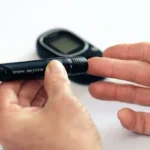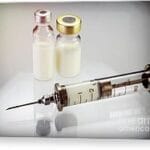Can Individuals with Type 2 Diabetes Donate Plasma or Platelets?
Individuals with Type 2 diabetes may be eligible to donate plasma or donate platelets if their condition is well-controlled. This means keeping blood sugar levels stable through a consistent treatment plan that includes diet, exercise, and, if needed, oral medications. Regular monitoring and ensuring there are no changes in their health status or treatment plan are important factors in determining if someone is a suitable candidate for plasma donation or platelet donation.
From my professional experience, people who actively manage diabetes through healthy habits and follow medical advice are often able to donate safely. It is essential, however, to consult a healthcare provider to confirm eligibility and ensure their diabetes is being properly managed without recent changes to their treatment or health. When the condition is under control, donation becomes a valuable way for individuals to contribute to the health of others.
Can you Donate Plasma or Platelets If you Have Type 2 Diabetes?
A Comprehensive Guide
If you have Type 2 diabetes, you may wonder whether you can donate plasma or platelets. The good news is that, in most cases, people with Type 2 diabetes who have their condition under control can donate plasma or platelets. However, there are several factors and guidelines to consider before heading to the donation center. Below, we’ll cover everything you need to know, from eligibility requirements to common concerns, and how to ensure safe blood donation.
Understanding Plasma and Platelet Donation
What Is Plasma Donation?
- Plasma is the liquid portion of your blood, which carries water, proteins, nutrients, and waste products. Plasma donation is crucial for medical treatments like burn recovery, clotting disorders, and shock treatments.
- Donation Frequency: You can donate plasma up to 13 times per year, typically every 28 days.
What Is Platelet Donation?
- Platelets are small cell fragments essential for blood clotting and are used in treatments for cancer patients, surgeries, and blood disorders.
- Donation Frequency: Platelet donation can occur more frequently than plasma, usually every 7 days, up to 24 times a year.
Eligibility for Donating Plasma or Platelets with Type 2 Diabetes
Eligibility for Diabetics to Donate Plasma or Platelets
Well-Controlled Blood Sugar Levels:
- Blood Sugar Management: If you manage your Type 2 diabetes with medication (insulin or oral meds) and a healthy lifestyle, you are typically eligible to donate plasma and platelets.
- Required Blood Sugar Range: Most donation centers require your blood sugar to be within a healthy range (70-180 mg/dL) at the time of donation. This ensures your overall health and the safety of the donation process.
General Health Requirements:
- No Major Complications: To be eligible, you should have no serious diabetes-related complications, such as diabetic neuropathy, retinopathy, or kidney disease.
- Overall Health: Blood donation organizations also assess your general health—whether you are free from infections, fatigue, or any other conditions that might affect the safety of the donation.
Medications for Diabetes:
- Insulin Use: Both insulin injections and pumps are acceptable for donation as long as your condition is well-managed. Medications like metformin are also typically fine for donation.
- Oral Medications: Diabetics on medications for Type 2 diabetes, such as sulfonylureas or GLP-1 agonists, can also donate if their blood sugar is under control.
Post-Donation Recovery:
After donating, some diabetics may experience fatigue or low blood sugar. It’s important to monitor your blood sugar levels before and after donation and consume a snack or meal to prevent a sugar crash.
Is It Safe for Type 2 Diabetics to Donate Plasma or Platelets?
Risks of Plasma Donation for Diabetics:
- Dehydration: Plasma donation removes the liquid part of your blood, which can cause dehydration. Diabetics are often at a higher risk of dehydration, so it’s essential to drink plenty of fluids before and after donation.
- Low Blood Sugar: Since plasma contains nutrients that help maintain blood sugar levels, donating plasma could lead to low blood sugar (hypoglycemia) if not properly managed.
Risks of Platelet Donation for Diabetics:
- Fatigue: Platelet donation can take longer (about 2 hours) and may cause fatigue. For diabetics, it’s important to ensure stable blood sugar and hydration levels throughout the process.
- Recovery Time: Platelet donation may take longer to recover from compared to plasma. Diabetics should take extra care in managing their diet and hydration to help speed up recovery.
Factors to Consider Before Donating Plasma or Platelets with Type 2 diabetics
Plasma Donation Process:
- Plasma donation involves extracting the liquid portion of your blood, which contains water, salts, proteins, and other components. It’s often used for medical treatments for people with burns, shock, or clotting disorders.
- Frequency of Donation: Plasma can be donated more frequently than whole blood. The FDA allows plasma donations every 28 days, but no more than 13 times per year.
Platelet Donation Process:
- Because platelets are necessary for blood coagulation, they are utilized to treat patients with cancer, bleeding problems, and surgical patients.
- Platelet Donation Frequency: You can donate platelets more often than whole blood, typically once every 7 days, up to 24 times per year.
Hydration and Diet:
- Both plasma and platelet donation require good hydration and a nutritious meal before the donation. People with Type 2 diabetes should maintain proper blood sugar levels before donating.
Health Benefits and Risks of Plasma and Platelet Donation for Diabetics
Benefits:
- Helping Others: Plasma and platelet donations are critical for patients undergoing surgeries, cancer treatments, and those suffering from certain blood disorders.
- Health Monitoring: Donating plasma or platelets can help you monitor your own health as donation centers often check your blood pressure, pulse, and blood sugar levels.
- Boosting Social Responsibility: Blood donation, including plasma and platelets, can promote a sense of community and altruism.
Potential Risks:
- Low Blood Sugar: After donation, low blood sugar may occur, particularly for those with diabetes. This can be managed with snacks and regular monitoring.
- Dehydration: Plasma donations remove fluids, so it’s crucial to stay hydrated to avoid dizziness or fatigue.
- Fatigue and Recovery Time: Platelet donation can be more tiring and take longer to recover from compared to regular blood donation.

Health Guidelines for Diabetic Plasma and Platelet Donors
Pre-Donation Tips:
- Monitor Blood Sugar: Check your blood sugar levels before donating. Make sure it’s within the target range, and bring a snack or drink to raise your levels if necessary.
- Stay Hydrated: Drink plenty of water before and after donation to prevent dehydration and help with the recovery process.
- Eat Well: Have a nutritious meal prior to donating. This helps stabilize blood sugar and ensures your body is ready for the donation process.
Post-Donation Tips:
- Avoid Low Blood Sugar: After donation, eat something with carbohydrates and protein to keep your blood sugar stable.
- Rest: Take it easy for the rest of the day. Plasma and platelet donations can be tiring, so avoid strenuous activity afterward.
Conclusion
While donating plasma or platelets with Type 2 diabetes is possible, it requires careful management of blood sugar levels, overall health, and adherence to donation guidelines. If your diabetes is under control and you’re free of complications, you can donate plasma or platelets safely. Always consult with your healthcare provider and the donation center before you donate to ensure the process is safe for you.
Type 2 diabetics can help save lives by donating plasma or platelets.
Important Takeaways:
- Ensure stable blood sugar levels.
- Monitor any diabetes-related complications.
- Follow post-donation care, especially for hydration and nutrition.
Frequently Asked Questions About Plasma and Platelet Donation for Diabetics
- Can people with Type 2 diabetes donate plasma? Yes, Type 2 diabetics with well-controlled blood sugar levels are generally eligible to donate plasma. However, it’s important to ensure no complications like neuropathy or retinopathy.
- Can I donate platelets if I take insulin? Yes, as long as your insulin therapy is well-managed, and your blood sugar levels are stable, you can donate platelets. Just be sure to monitor your levels carefully before and after the donation.
- Do I need to stop my diabetes medication before donating? No, you do not need to stop your diabetes medications. Ensure your blood sugar is well-controlled before donating. Some centers may ask about your medications, so it’s important to inform them.
- Can I donate if I have diabetic neuropathy or kidney problems? If you have complications such as diabetic neuropathy, retinopathy, or kidney disease, you may not be eligible to donate plasma or platelets due to the risks of further complications during donation.
- How long after a change in diabetes medication should I wait before donating? It’s generally recommended to wait at least 4-6 weeks after a major change in your diabetes treatment before donating plasma or platelets to ensure your condition is stable.
- Can Type 2 diabetics donate blood and platelets? Yes, as long as their diabetes is under control and they meet general health requirements
- Is insulin use a disqualification for plasma or platelet donation? No, insulin use doesn’t automatically disqualify you from donating, but you must ensure your diabetes is well-managed.

Dr. Hamza is a medical content reviewer with over 12 years of experience in healthcare research and patient education. He specializes in evidence-based health information, medications, and chronic disease management. His reviews are based on trusted medical sources and current clinical guidelines to ensure accuracy, transparency, and reliability. All content reviewed by Dr. Hamza is intended for educational purposes only and should not be considered a substitute for professional medical advice










